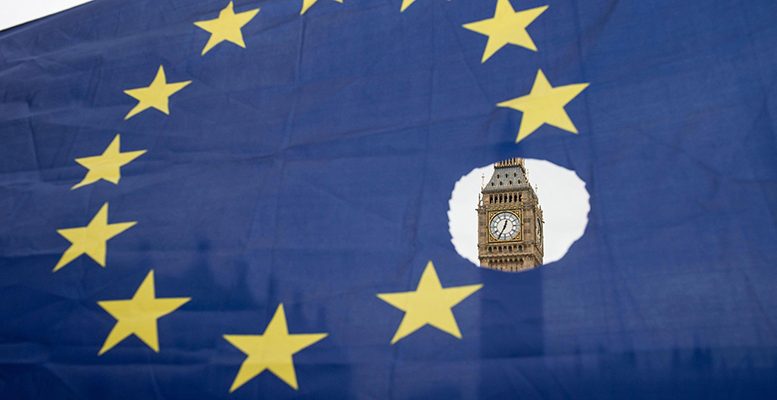*This article was originally published by Fair Observer
Samantha North | In the 1980s, I was born having freedom of movement across Europe, when Britain was part of the European Economic Community. The concept of EU citizenship was formally established in 1993, as part of the creation of the European Union itself, under the Maastricht Treaty.
Freedom of movement in Europe was always something I took for granted. I saw Europe as part of our heritage, despite the grumblings of euroskeptics and sly articles in the British press about the perils of straight bananas and the metric system.
I traveled a lot in my youth, but travel was never really the issue. Citizens of many countries from outside the EU can stay in the Schengen zone for up to 90 days without a visa. It wasn’t until 2009 that the benefits of being an EU citizen became obvious to me.
Free to work and study in Europe
I signed up for a master’s degree in Brussels, Belgium. The beauty of this was, as an EU citizen, the entire degree cost me only €500 ($560). It was taught in English and full of students from all over the world.
There was no paperwork to deal with, no need to prove income, no need to apply for any student visas. Education in Belgium was as open to me as education in my country of origin. And that would have been the same for education in any country in the EU.
I stayed in Belgium for two years. During that time, I could work freely without any authorization. I taught English at the European Parliament. I also did a number of freelance jobs on the side. But I could have worked anywhere, from behind a bar, to the top levels of the European institutions.
As an EU citizen, I had the right to live and work in Belgium, just as I did with any other country in the EU and the European Economic Area (EEA). No sponsorship needed, no work visa, no permission of any kind.
I often traveled back and forth between London and Brussels. The Eurostar was, and still is, the best mode of transport. It takes you directly from the center of one capital into the center of the other. With an EU passport, going through immigration was quick and simple. In contrast, passport holders from outside the EU had to wait in a separate queue, all herded together.
I didn’t use my EU freedom of movement rights again for 10 years. But that would be for the final time, as a big change was coming.
The vote that changes everything
The next few years were chaotic, full of political turmoil and tribalism. The Brexit referendum had split the country down the middle, and things would never be the same again.
After the vote, there was a rapidly closing window of opportunity to move to the EU. I knew that was the only option for me. So, in the early weeks of 2020, I moved to Lisbon, the capital of Portugal. Time was running out by then, with the Brexit transition period in full swing. Within months, UK citizens would be officially relegated to third-country national status.
There was no time to waste in securing residency in Portugal. As an EU citizen, it was easy. I landed in Lisbon, took my passport and showed up at the nearest municipal office. Thirty minutes and €15 later, I had a five-year temporary residency document for Portugal.
Portugal’s citizenship timeline is five years. All being well, that document will allow me to regain my EU rights sometime in 2025, this time as a proud citizen of Portugal — the country I chose.
The EU project is far from perfect. Like any large-scale collaboration of humans, it’s fraught with issues. Yes, there’s corruption. Yes, there’s waste and inefficiency. Despite that, the EU is an ambitious project that emerged out of the devastation of the Second World War. The resulting economic cooperation has kept Europe peaceful ever since. In that sense, it’s doing exactly what it was designed to do.
Citizen from another somewhere
I don’t like nationalism. It’s too easily misused. And I can’t be proud of something that I didn’t achieve: the coincidence of being born on a certain piece of land. Does that mindset make me a “citizen of nowhere”? If so, that’s good. Thanks for the compliment, Theresa.
As the late John le Carre once said, “If you want to make me a citizen of nowhere, I will become a citizen of another somewhere.” An Englishman all his life, le Carre died an Irish citizen, so disappointed was he at the fallout from Brexit. He was fortunate to have that Irish heritage. Not everyone does. And those that don’t have become second-class citizens in Europe.
National pride is artificially constructed to hold the nation-state together. It plays on our natural inclinations toward tribalism, which is merely an evolutionary hangover. Benedict Anderson’s classic book, “Imagined Communities,” explains these ideas better than I ever could.
Perhaps the EU is an “imagined community” too. But countries working together, no matter how flawed the process, is the only route we have to improving the world. It’s a project I’m determined to be part of. And if I can’t do so as a British citizen, then I’ll happily do so as a Portuguese.
*This article was originally published by Fair Observer
*[Samantha North is the founder of Digital Émigré, an EU citizenship consultancy.]





